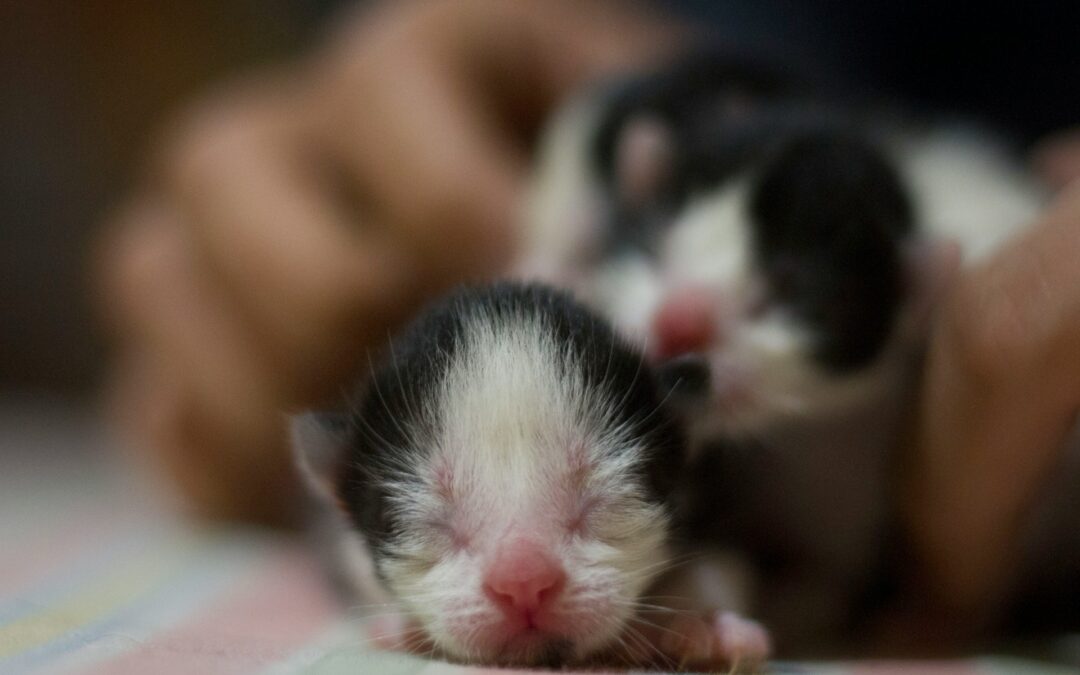While it might seem natural to pour them a saucer of milk, all cats are lactose intolerant, and most cats are actually allergic to milk. If you rescue or foster a litter of kittens, you need to be very careful about what you feed them. Kittens less than six weeks old will need a special kitten milk formula. Giving them cow’s milk could be very harmful, because kittens can only drink milk from their mothers.
What to Feed a Kitten
Birth to Six Weeks
Like all mammals, kittens drink their mother’s milk until they’re old enough to chew and digest other foods. The mother cat will usually start weaning her kittens when they’re around four weeks old. They won’t be ready to fully transition to solid food until they’re around eight weeks old—six weeks at the earliest.
When kittens are less than six weeks old, they are too young to be fully weaned. You will need to get some kitten formula and bottle-feed them every 2-6 hours, depending on their age.
NEVER give a kitten cow’s milk, baby formula, or anything else besides kitten formula. Kittens get most of their hydration from drinking milk. If the milk you’re feeding them causes diarrhea, they could become severely dehydrated and even die.
Six Weeks to Six Months
You can start feeding a kitten small amounts of wet food and kitten chow once they’re old enough. Just remember: kittens are growing quickly and have different nutritional needs than adult cats. That’s why it’s important to purchase kitten-specific kibble and wet food for your cat’s first year of life.
Kitten food contains the extra fat and protein they need to develop healthy bodies and intelligent brains. Kittens also need to eat more often than adult cats. Once they’re weaned, they’ll need to eat three or four meals a day until they’re at least six months old.
Is Milk Safe for Adult Cats?
Although milk is not exactly toxic to cats, drinking it can cause some very painful side effects. Cats cannot digest lactose, so drinking cow’s milk will give them an upset stomach, gas, and diarrhea. Cats may enjoy the taste of milk, but you shouldn’t give it to them, because it will make them feel sick later on.
Milk and dairy products like cheese also have a lot of fat, which could be dangerous for adult cats. Obesity in cats can lead to problems like arthritis, hip dysplasia, diabetes, heart disease, cancer, and chronic pain. It also shortens their lifespans considerably. Feeding your cat a healthy diet, controlling their meal portions, and avoiding fatty treats is the best way to prevent obesity.
Veterinary Care for Cats and Kittens in Gilbert, Arizona
For dietary advice and complete cat care, come to Anasazi Animal Clinic in Gilbert. Our vets are the best of the best—they’re gentle, caring, and highly trained. Cats can live for 20 years or more, and good nutrition when they’re a kitten will start them off on the path to a long and happy life.
If you have any questions about kitten nutrition or if you have a new kitten to care for, contact us to make an appointment today.
Photo by Jesús Boscán on Unsplash used with permission under the creative commons license for commercial use 4/2/25.

